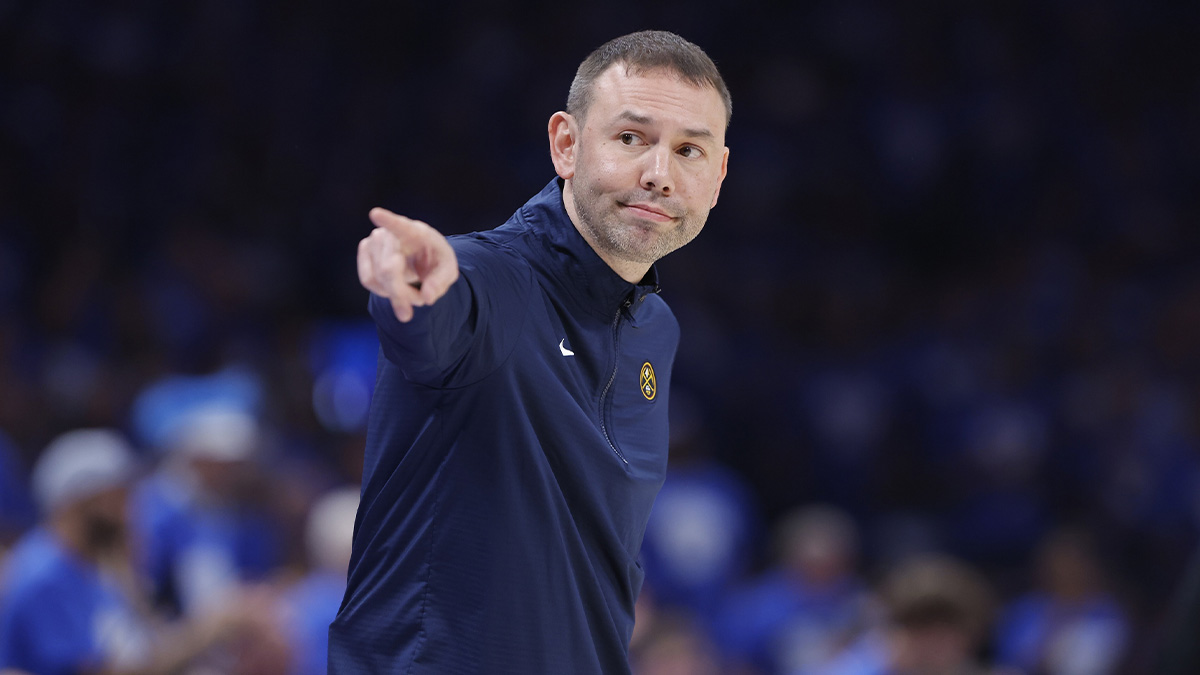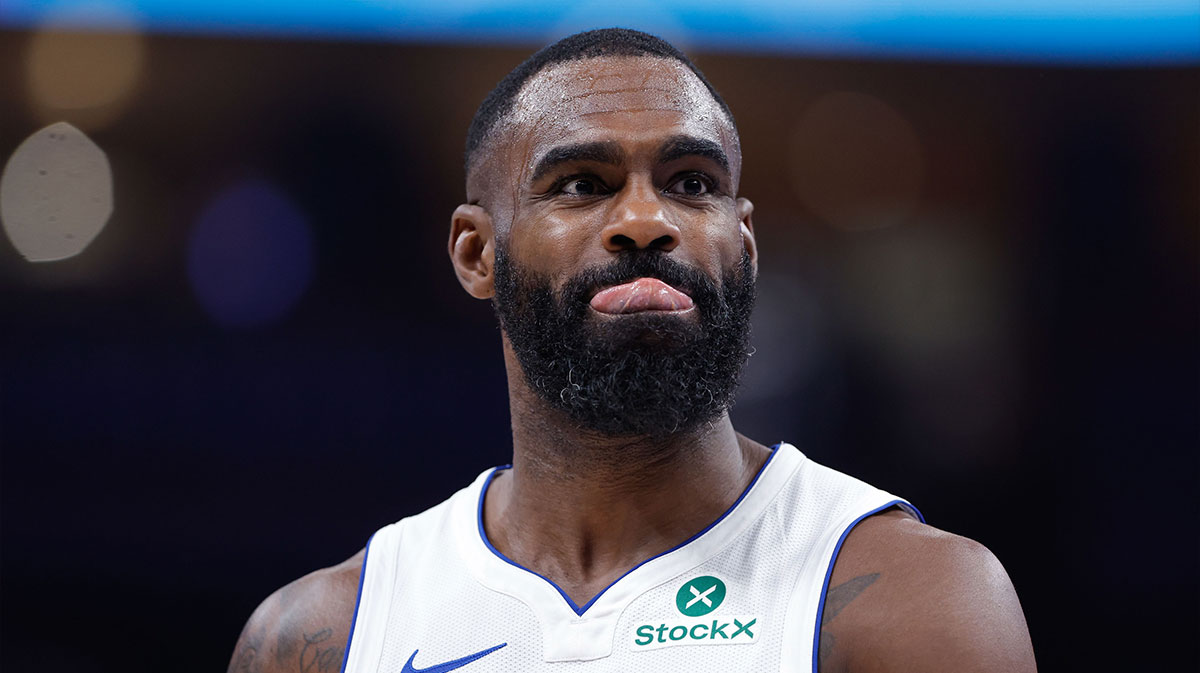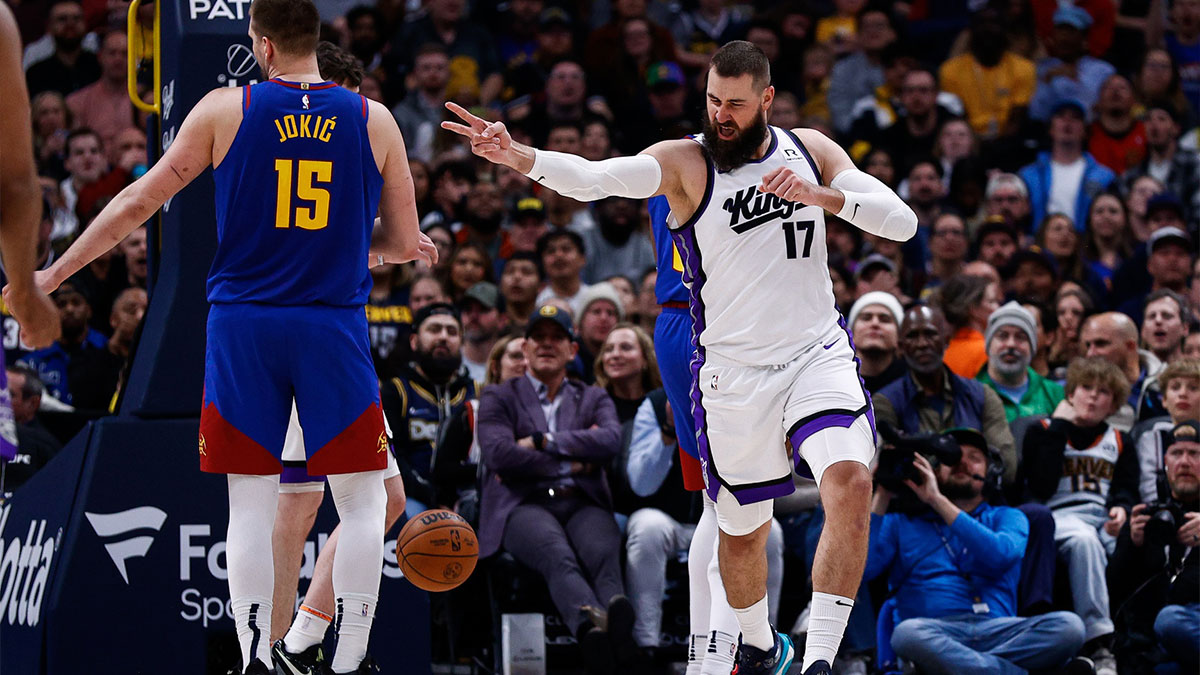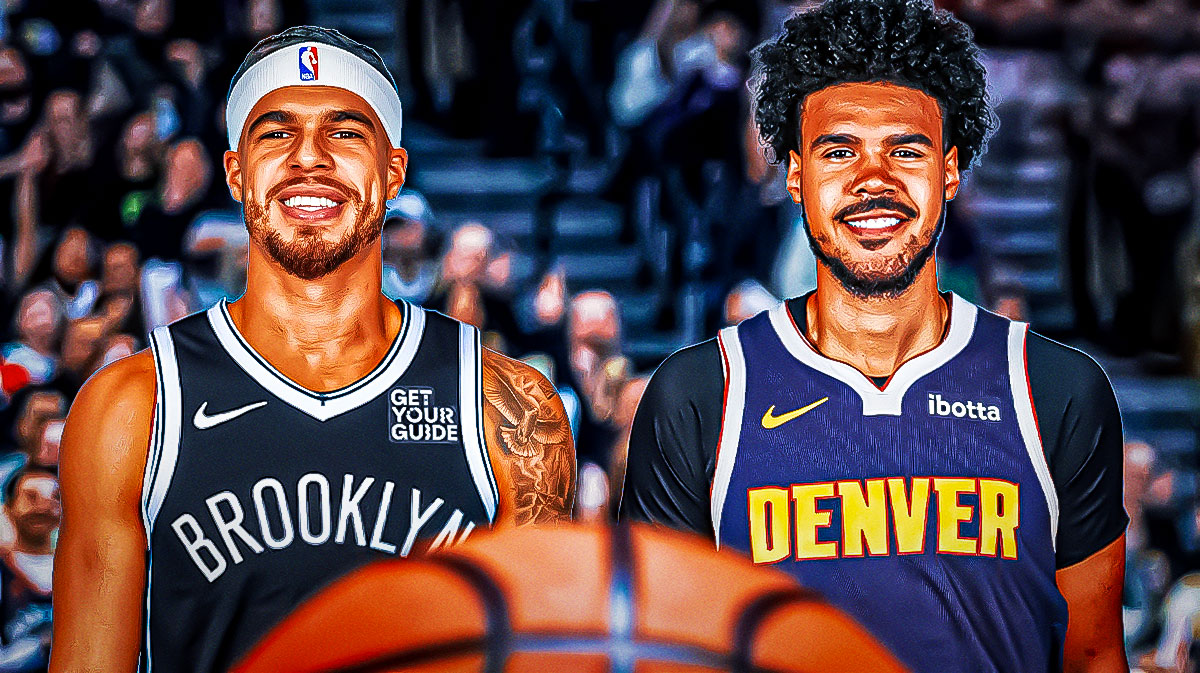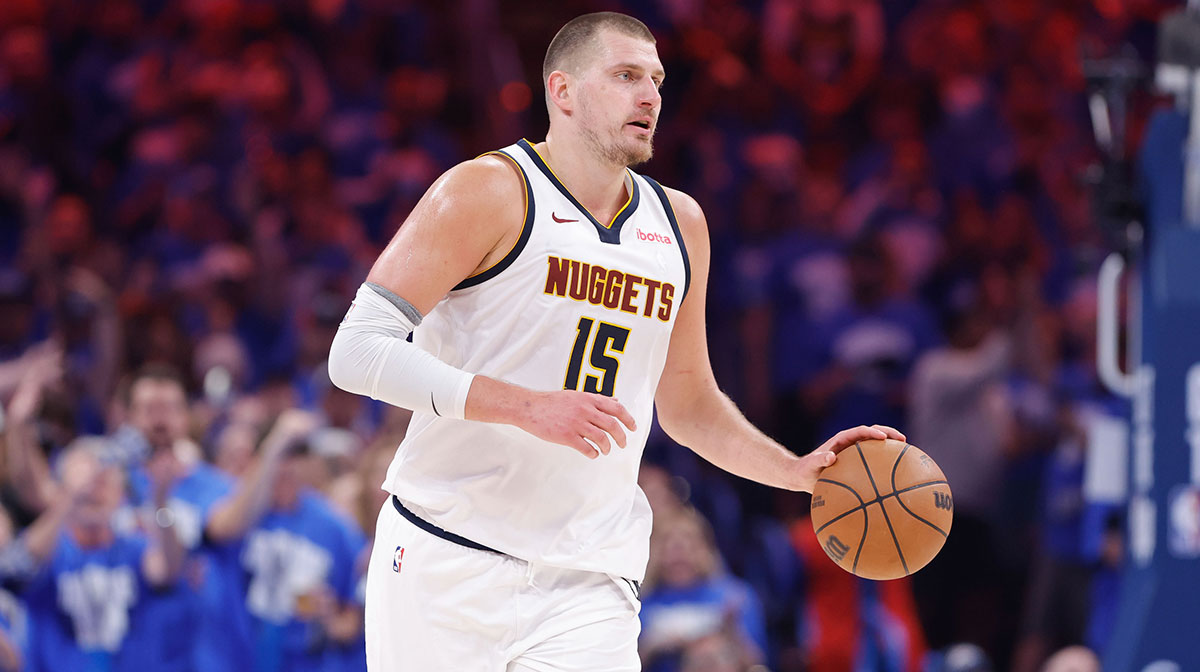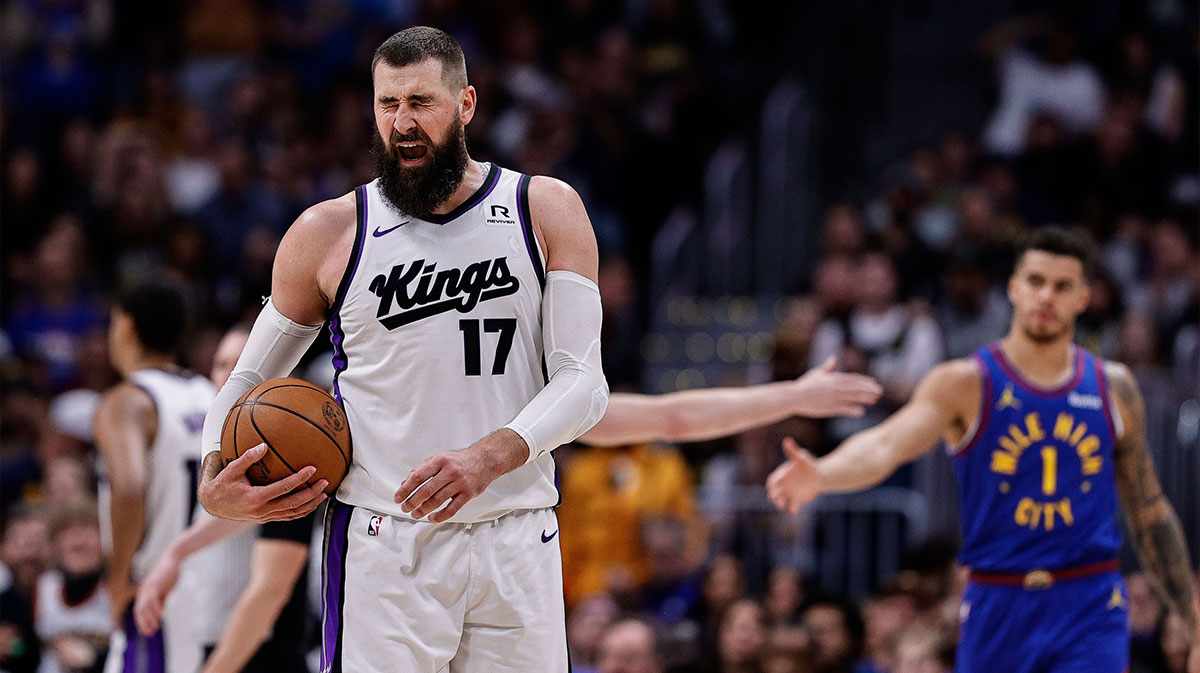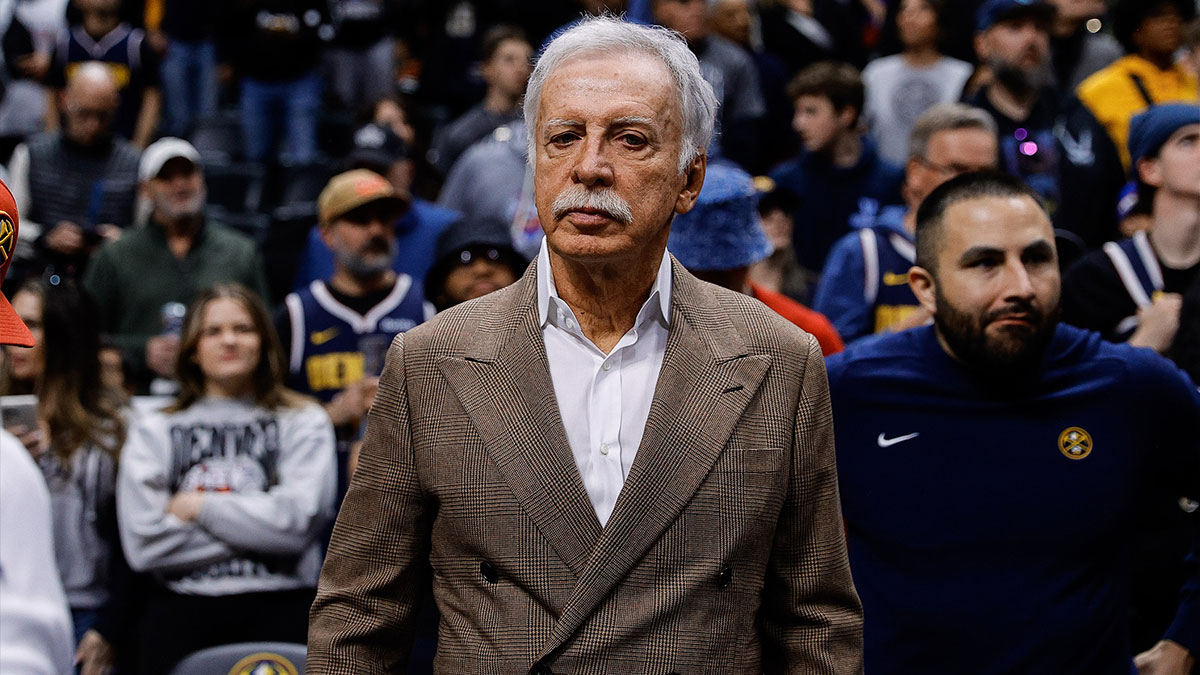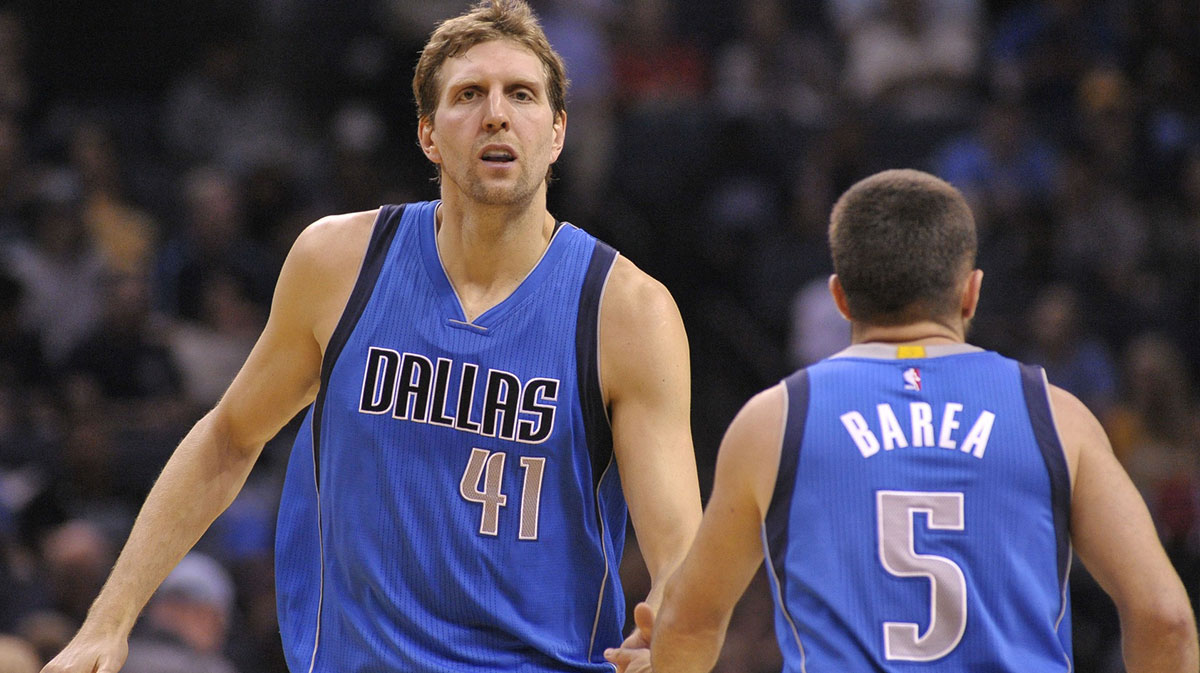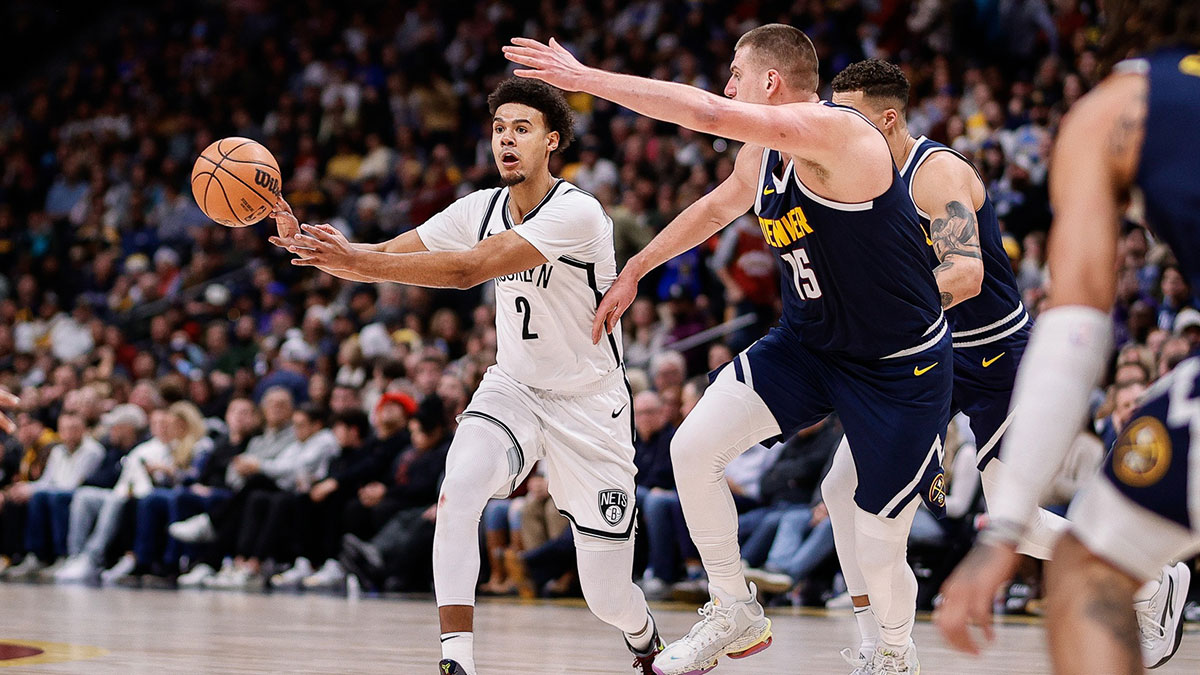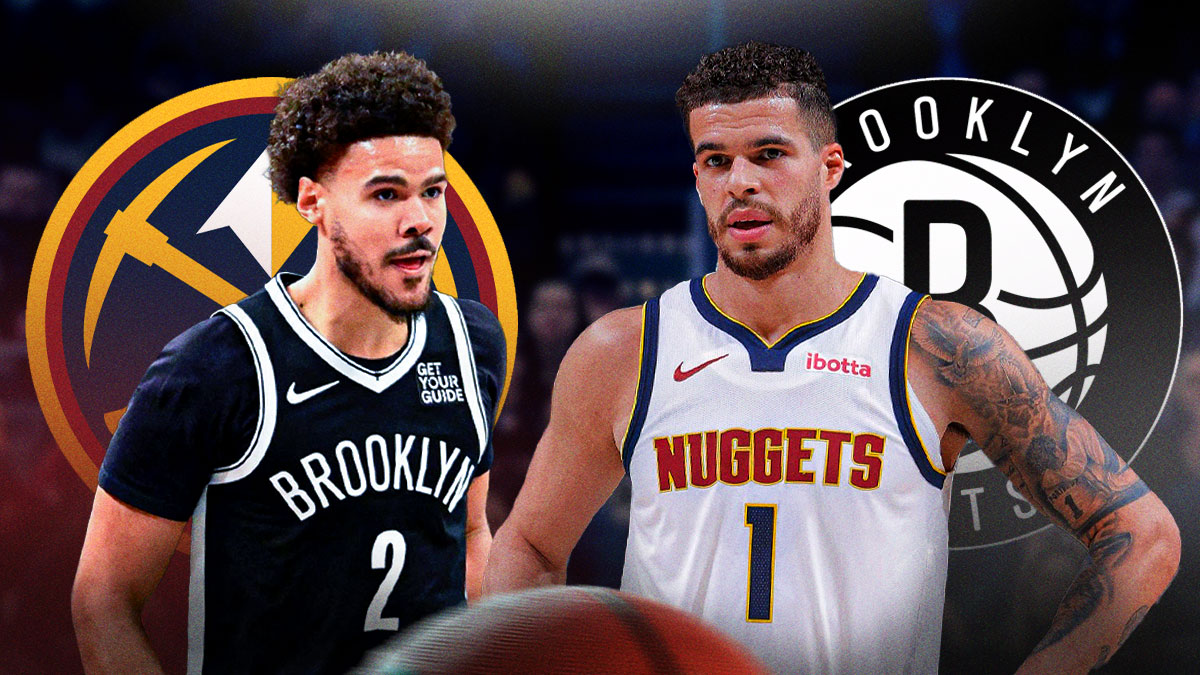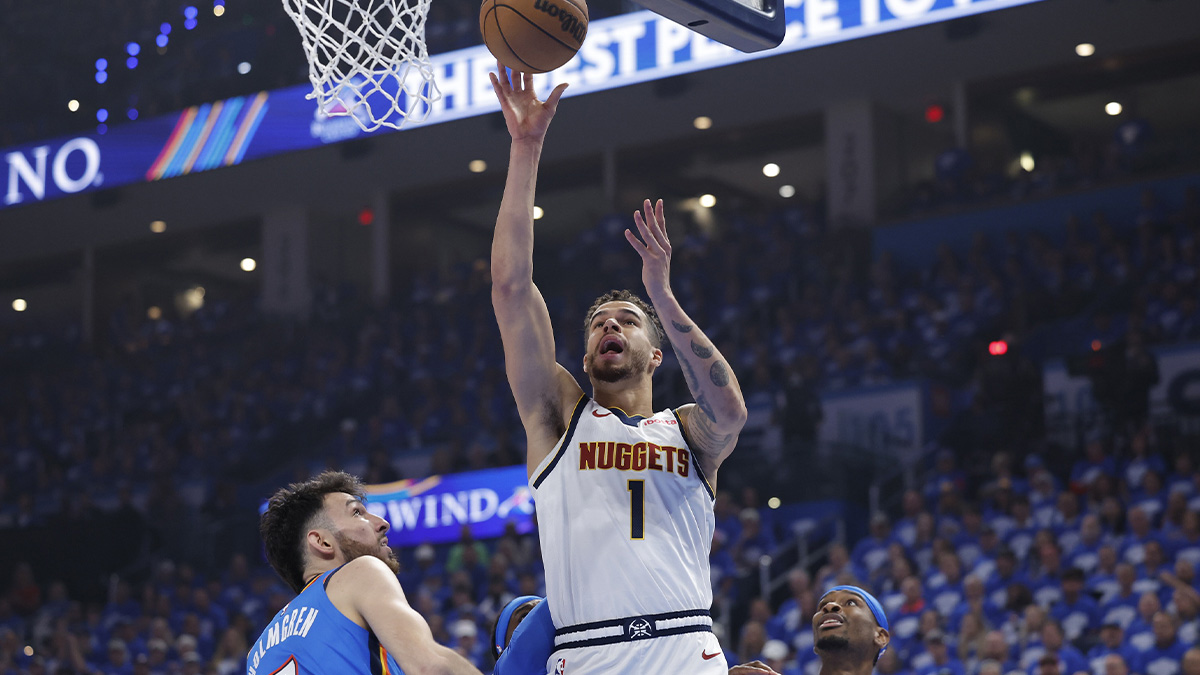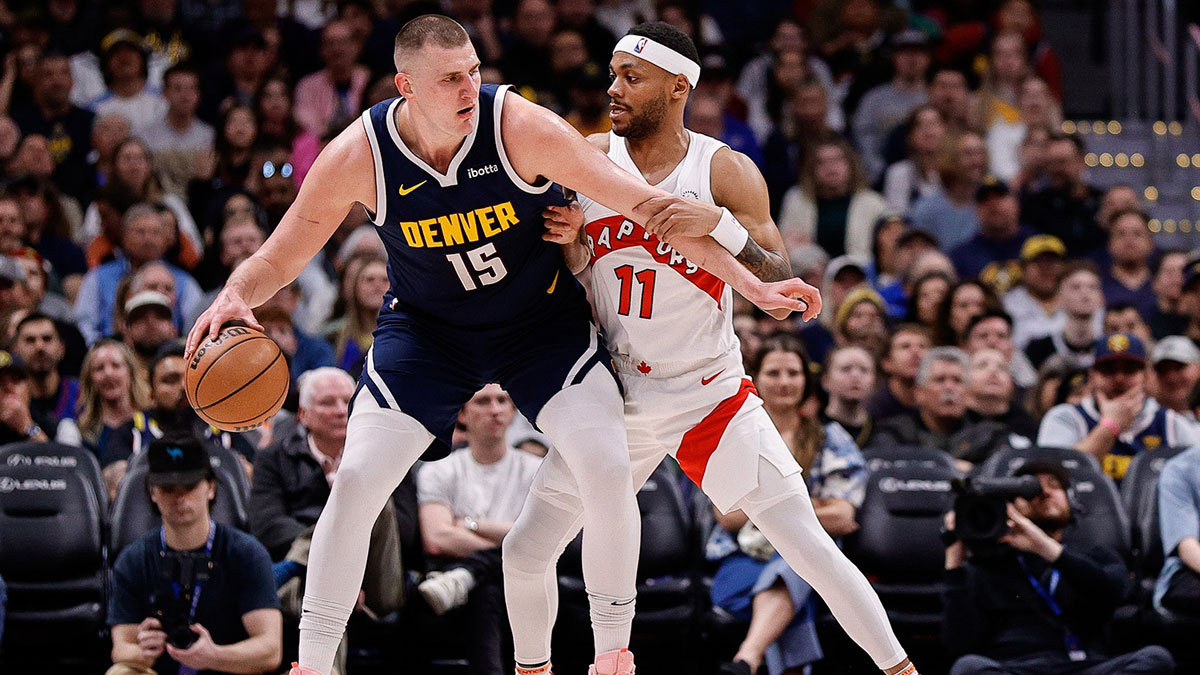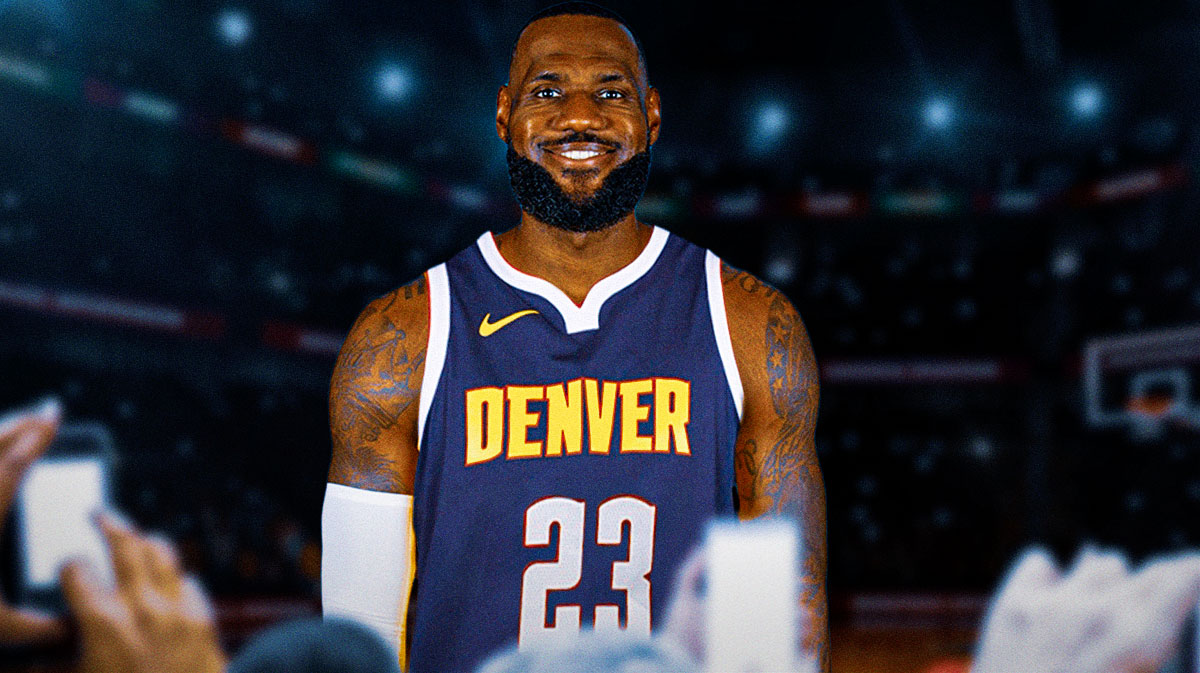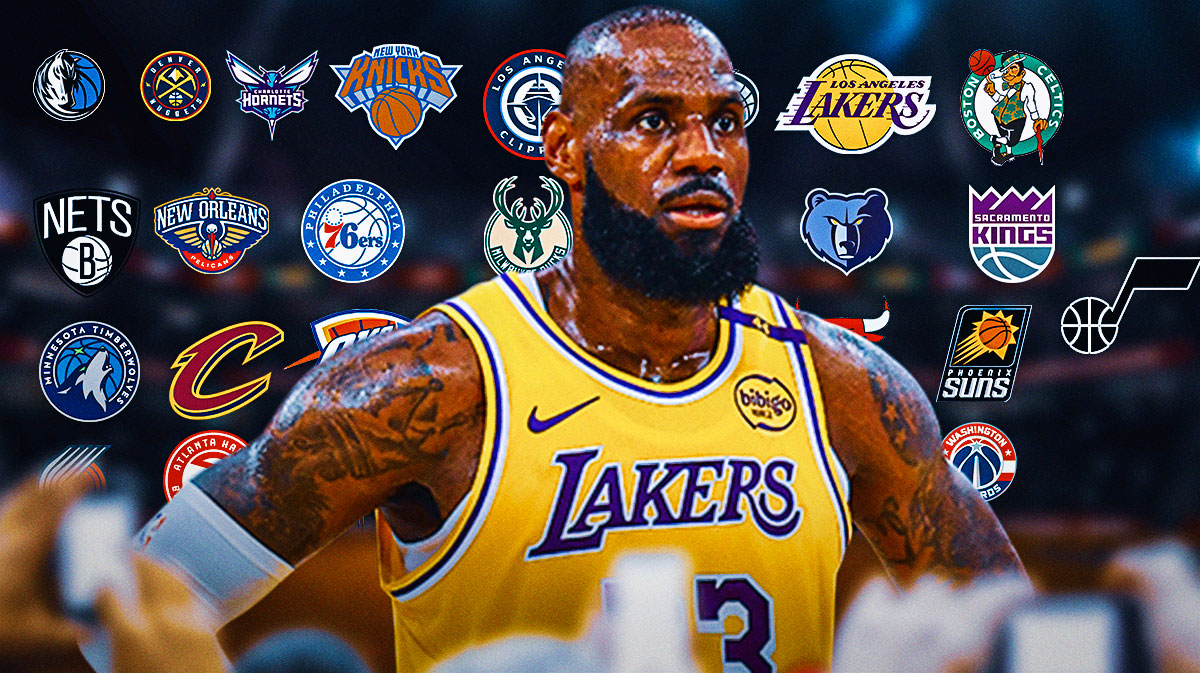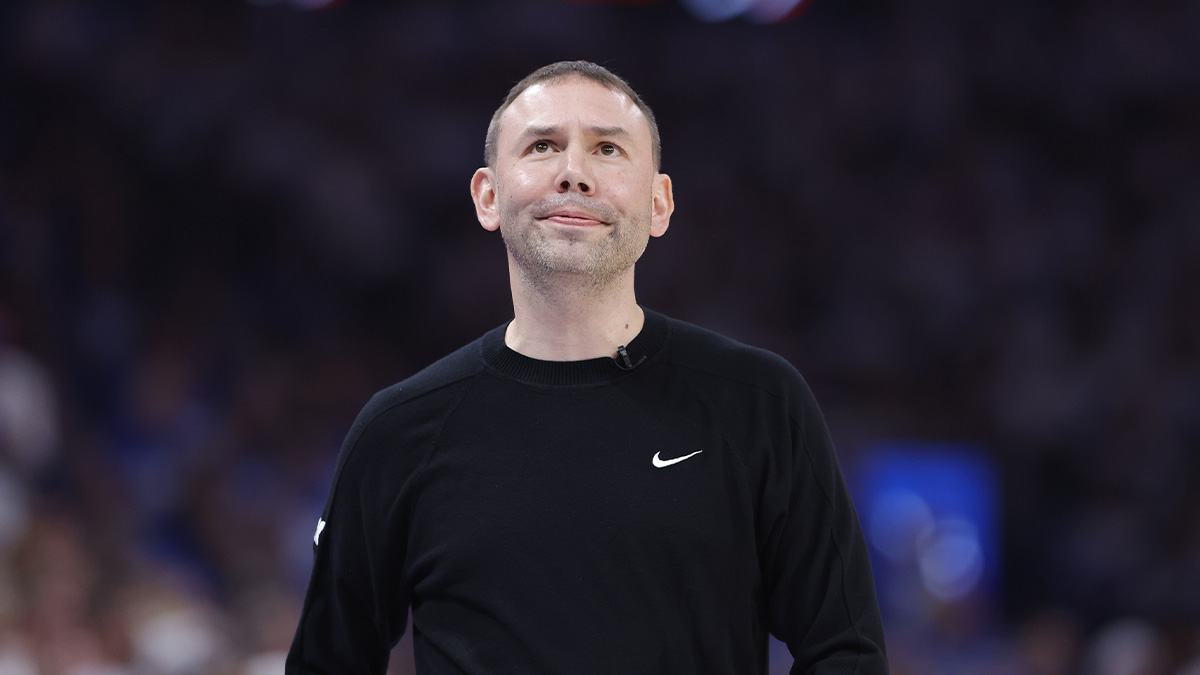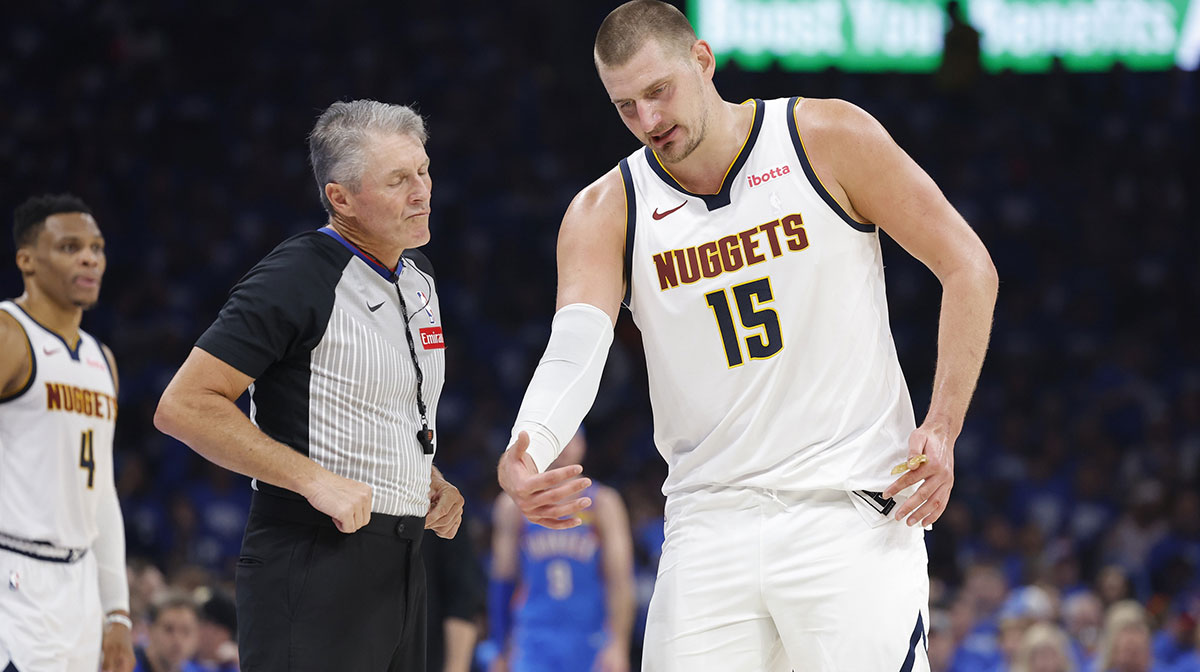Season Autopsies: San Antonio Spurs | Phoenix Suns | Dallas Mavericks | Sacramento Kings | Denver Nuggets | Milwaukee Bucks | Miami Heat | Minnesota Timberwolves
Fighting for the Denver Nuggets playoff lives, Nikola Jokic looked like one of the NBA’s most unstoppable forces in the third quarter of his season finale agains the Minnesota Timberwolves.
Jokic used his size and mobility to setup pull-up jumpers, turnaround fade aways, and pick-and-pop three-pointers, scoring 17 points in the third quarter on 7-for-7 shooting.
Jokic with the muscle and soft touch!#MileHighBasketball 72 | #AllEyesNorth 76 midway through Q3.
📺: @NBATV
💻: NBA League Pass – https://t.co/Ex21OzySei pic.twitter.com/YGeRCo03S7— NBA (@NBA) April 12, 2018
In the fourth quarter and overtime, he was relatively quiet. In the final stretch of the season, Jokic scored just five points on 2-for-8 shooting while struggling to get a clean look over Taj Gibson.
Thibs seemingly making sure Taj Gibson guards Jokic on every possession has certainly altered the complexion of this game #Timberwolves pic.twitter.com/MrbuCybq4M
— Justin Jett (@JustinJett_) April 12, 2018
There remains great debate around Jokic and the type of respect he deserves. His efficiency numbers leap off the page higher than he phsyically ever could, making him a popular figure in some NBA circles. But his lack of volume scoring and positionally unorthodox style cloud his value as a franchise player to some casual fans and basketball traditionalists—painting him as a novelty act.
And while Nikola Jokic was mostly brilliant, inconsistency was the name of the game for the Nuggets all season. This was enough to extend Denver beyond its already razor thin margin of error—just missing out on the playoffs for a second straight season.
The polarization of his place in the league isn't whether he's a valuable player, but rather, if the rush to legitimize him as an elite player individually is too far ahead of his team's success.

So, what might an autopsy reveal about the way the Nuggets floundered this season? Getting only 38 games from prized offseason acquisition Paul Millsap is an obvious place to start; as is the lack of a quality point guard.
Jamal Murray and Gary Harris are explosive, complementary offensive pieces, but still struggle to create for themselves or others out of ball screens. Neither are quite crafty enough yet to handle intense defensive pressure.
Mostly, it was the defensive issues rearing their ugly head that cost the Nuggets a playoff spot again.
Poor individual defenders, flawed roster construction, inconsistent effort, and a few devastating losses to bad teams muddied what was a prolific offense and, to a certain extent, the reputation of their burgeoning superstar.

For the season, the Nuggets gave up 108.8 points per 100 possessions, a mark that ranks 26th in the NBA per NBA.com.
First, it's important to acknowledge a fallacy in defensive statistics. Denver ranked dead last in opponent three-point percentage this year, ceding 37.8 percent. The average is around 36 percent and only one team, the Golden State Warriors, shot greater than 38 percent this season.
There are certainly fundamental flaws the Nuggets need to fix but giving up nearly 38 percent shooting requires some amount of misfortune where teams are simply hitting an outlier number of shots.
Still, it's on a team to account and budget for non-injury luck and Denver simply hurt itself in too many areas it can control to navigate the issues it couldn't.
Blessing and Curse

Nikola Jokic has emerged as a franchise savior for the Denver Nuggets. He is one of the most uniquely skilled centers in the league, as evident by his insane statistical output.
This season, The Joker averaged 18.5 points, 10.7 rebounds, and 6.1 assists per game while shooting 39.6 percent from three on 3.7 attempts.
Modern big men can stroke from deep, but rarely to this extend.
Jokic's three-point range is higher than many stretch bigs around the league, including Joel Embiid (30.6 percent), Marc Gasol (34.1 percent), and DeMarcus Cousins (35.4 percent).
He's also a dual threat, capable of taking mismatches onto the low block and punishing teams in the paint.
And for as adept as he is at these things, they're only secondary skills meant to balance out his elite playmaking.
https://www.youtube.com/watch?v=NvwPG54xS3Q
Coach Mike Malone has done a tremendous job empowering Jokic, installing a playbook that utilizes his strengths with counters or whatever a defense throws at him. The Nuggets invert defenses by drawing centers out of the paint, with Jokic holding the ball while teammates swirl around him, screening and cutting.
The drawback is, what unbalances an opponent can quickly turn on the Nuggets with the slightest miscue.
Lost in transition

Transition defense was a huge issue for the Nuggets and there’s absolutely a relationship between Jokic’s conditioning and Denver boasting the second worst transition defense.
An old coaching adage is “transition is won or lost in the first three steps,” and a player as slow as Jokic needs every second he can get to get back on defense.
There are simply too many plays where the Nuggets' superstar gives up after committing a turnover on his own and allows the offense to get a head start up the court:
While he's an emotional player for better or for worse, situations like these drive a coach crazy. The first mistake—the turnover—is not a cardinal sin; but the second mistake, giving up on the play to dwell on the frustration of the turnover, certainly is.
There are tons of head-scratching turnovers that come from Jokic. The guy commits almost three giveaways a game. Many of those errors come in transition or from Jokic trying to throw borderline impossible passes.
His coaches know they must live with those turnovers. In order for Jokic to be the magic man he is with the ball in his hands, the price they pay is dealing with errant plays. Still, living with both the pushing of the envelope AND a terrible effort to get back on defense can make one's blood boil.
Jokic carries as much of a burden as any big man in the game. The way Michael Malone employs him in the offense puts Jokic at the top of the key, often with all four of his teammates cutting and screening within 10 feet of the basket. Should a turnover occur, Jokic is the primary line of defense against the other team scoring in transition.
Failures on his part to get back and impart the play in a positive manner lead to easy baskets for the other team. Often times this isn't with dunks or layups at the rim, but kick-out or trailing threes when the rest of the team sprints back deep to the lane because Jokic can't keep the ball out of the lane at all:
This is part of the sunken cost of playing the style the Nuggets want to play: turnovers will hurt them badly. The only team that cedes a higher point-per-possession mark, the Milwaukee Bucks, run a similar elbow-centric style of offense that lends itself to the same pitfalls.
Hiding a giant

Denver will need to get a handle on its transition defense because it will take some time for Jokic to iron out his individual issues.
In the Nuggets’ final loss, Timberwolves Head Coach Tom Thibodeau repeatedly dialed quick-hitters to target Jokic, giving him nowhere to hide on the defensive end.
Initially, the Nuggets wisely placed Jokic on Taj Gibson, keeping him off the 42 percent three-point shooting unicorn, Karl-Anthony Towns.
But Thibodeau had his Timberwolves prepared, consistently running side pick-and-rolls with Gibson as the screener and exposing Jokic’s plodding feet to ball handlers Jeff Teague and Jimmy Butler.
Whether through ball-screens or dribble handoffs, the strategy was the same: put Jokic in a two-man game with a primary ball handler, a good screener, and an empty-side roll to for Jokic to halt dibble penetration and recover:
Karl-Anthony Towns attempted zero treys last night, instead using his shooting ability to suck Jokic away from the rim. One pump-fake and numerous wretched close-outs from the Joker brought wide open lanes for KAT to skate to the rim and throw down some vicious slams.
A great deal of this was set up from the two-man games, where Jokic felt the urgency to close out to the rolling or popping screener, who torched him early and often. Whether off help-and-recover situations or simple pick-and-pops to the top of the key, Towns blew past him on numerous occasions:
When Jokic checked out, the Timberwolves would go at Mason Plumlee one-on-one in the post, brutalizing him with Towns on the right offensive block. Towns went off as the Nuggets had no answer for his production on the interior.
Even in do-or-die games, Jokic's overall effort and movement on the defensive end waned. In the middle of the first quarter against the Timberwolves, he found himself fatigued and struggling to leave the paint to contest shots:
Until Jokic improves his conditioning and desire to anchor a defense, the Nuggets are going to continue to have issues.
Moving forward

The good news for Denver is many of the answers to their problems lie in-house. Murray and Harris, along with the rest of their youthful core, will continue to mature into competent defensive pieces.
Guys like Malik Beasley, Juan Hernangomez, Trey Lyles and defensive stopper Torrey Craig are all great finds from their scouting department who can find a niche in an up-tempo, spread-and-space offensive system. They'll get another crack at things with Paul Millsap healthy next season and have the opportunity to add another piece with their own pick, likely to be 14th in the draft.
The nuts and bolts of a young 46-win team in a difficult Western Conference returns – that's a lot to be excited about.
Now the bad news: it all revolves their financial situations.
Excitement about the core and its youthful upside is tempered by overtures about how the roster likely must evolve – and part from a draft pick or young piece – if they're going to find financial relief.
Jokic, despite his defensive issues, is likely to command a max contract from the Nuggets during the summer of 2019. That number, projected to be at around $27 million, would propel the Nuggets' 2019-2020 cap figure to $105.8 million for only eight players.
Big changes will be coming to Denver, if not this summer then next, to ensure they don't overspend.

With that insane salary spike in mind, the front office brass would be careful to avoid going over the luxury tax during the upcoming 2018-19 season as to avoid the repeater tax and save some financial flexibility.
As things stand now, with 12 players under contract—including the player options of Darrell Arthur and Wilson Chandler—Denver is hovering around $11 million before reaching the tax. Their draft pick could provide a nice low-cost option to add depth, and the team's infatuation with defensive-stopper Torrey Craig should mean he's a nice budgeted option to return.
That would all but account for their 15-man roster, and the Nuggets still have some high-value draft-and-stash players held in the European leagues. This team might be able to withstand the impending departure of Will Barton in free agency.
All this assumes the organization wants their on-court product to look the same and expects enough growth internally to make sure the Nuggets don't fall up short once again. If that's not the case, some trades have to alleviate the bloated frontcourt. We may finally get to see Kenneth Faried freed of his backup role, or a larger deal for a bigger piece like Kemba Walker, which was rumored this past February.
Missing the postseason leaves a sour taste, despite the positives that come from a 46-win season with all the adversity this club faced. The future is bright and the sky is the limit for this young core, but the business side of basketball's richest league dictates how long some windows for competing can stay open. In the immediate future, it's the front office that's on the clock.
Unless otherwise noted, all stats are courtesy of NBA.com, basketball-reference or Synergy Sports Tech, and are current as of May 12, 2018.

